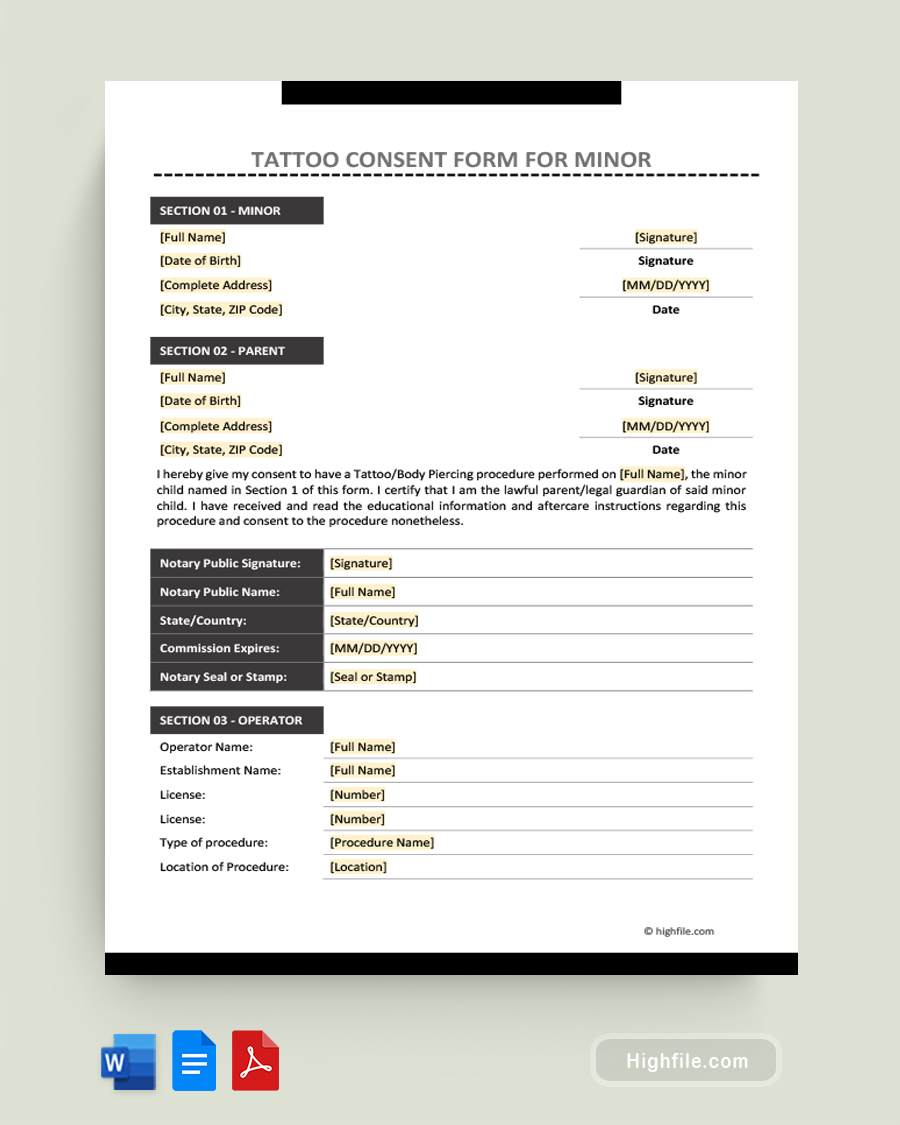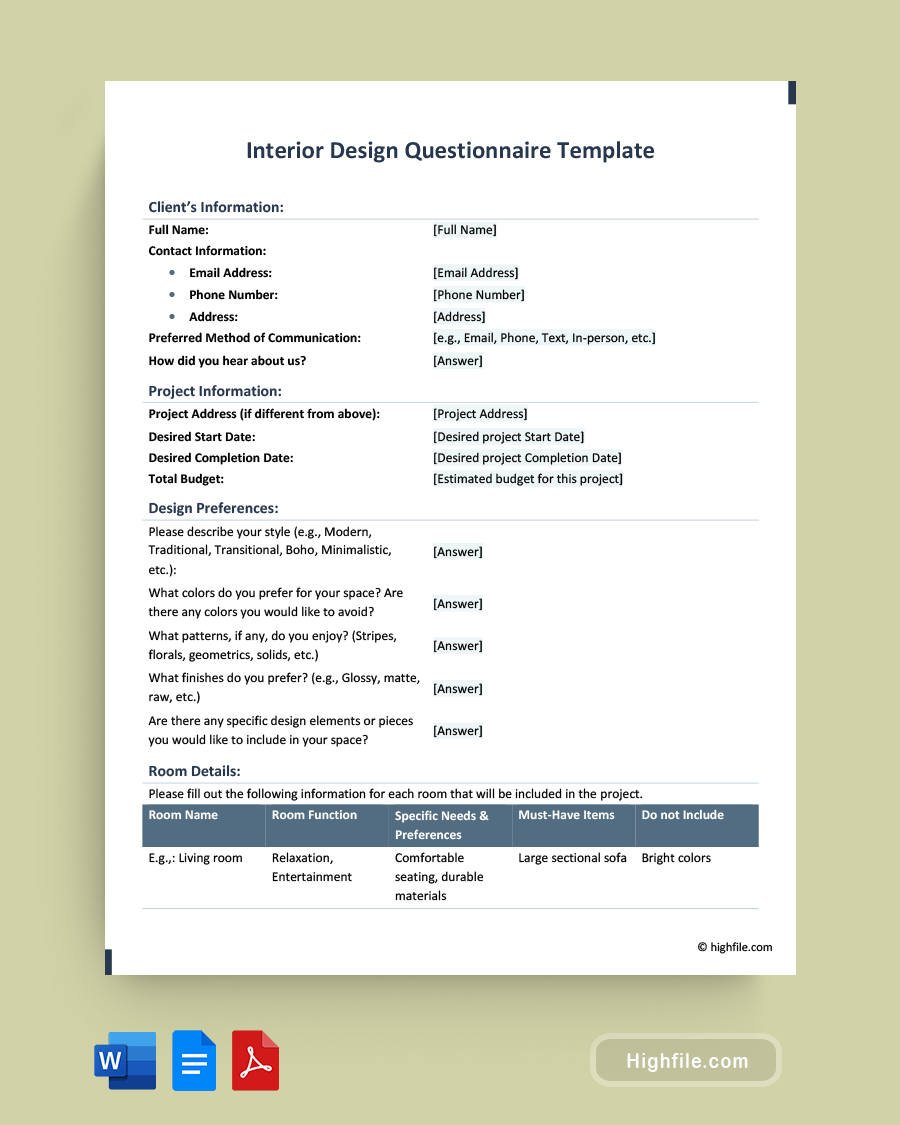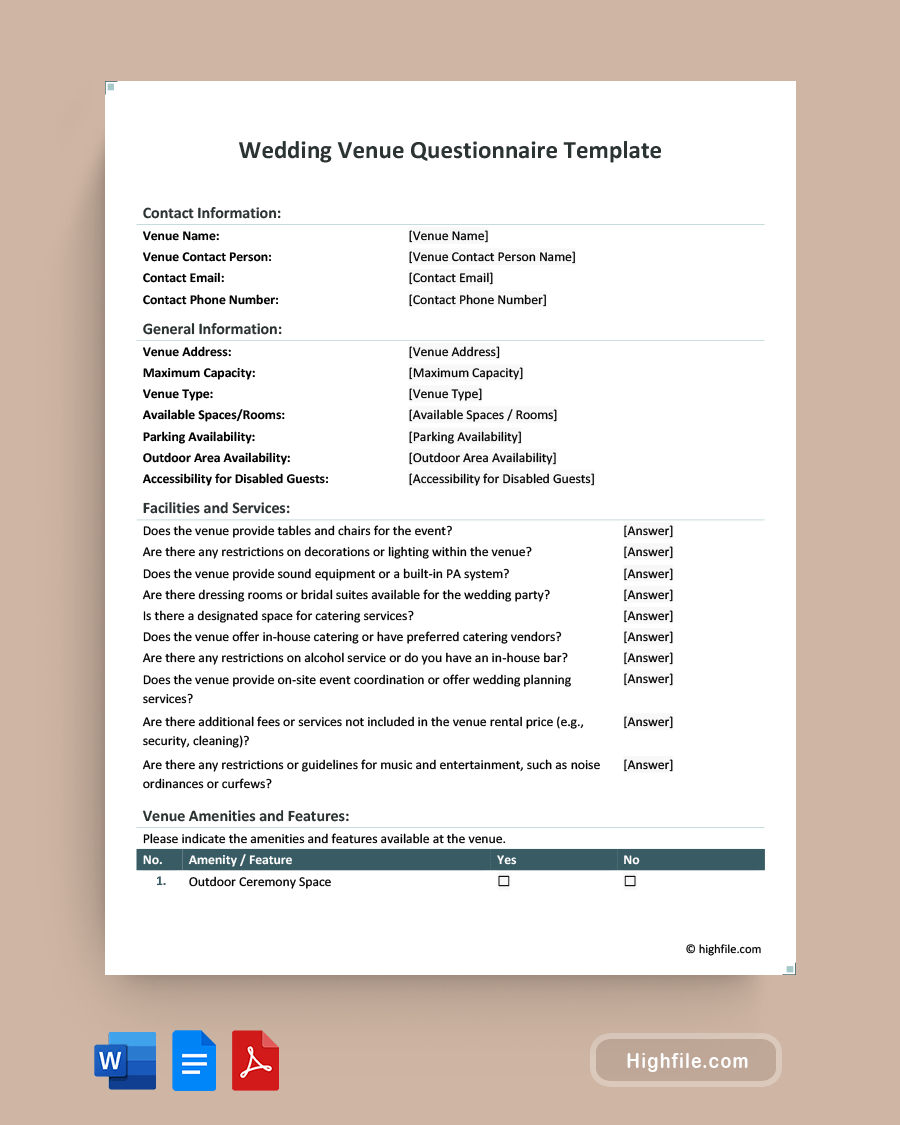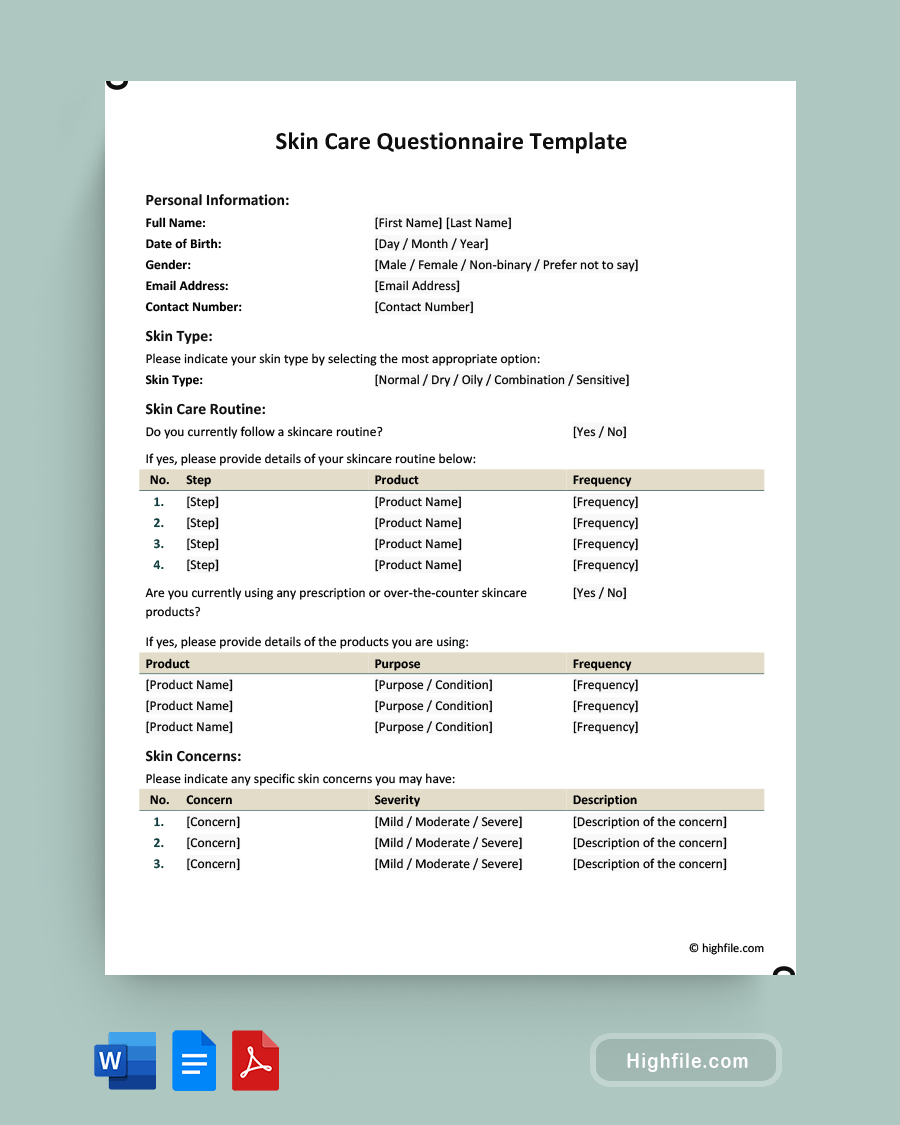A tattoo consent form for minors is a business and legal requirement for anyone offering tattoos to the public. Tattoos and body piercings are becoming increasingly popular among adults and minors who want to decorate their bodies with artistic tattoos, add a special tattoo to commemorate someone, or just add a tattoo because it is a neat thing to do. Tattoos are considered permanent; however, they can be removed by expensive and painful surgeries. For this reason, most states and countries now require a tattoo consent form for minors to be signed and approved by their parents before a tattoo can be added.
This post about tattoo consent forms for minors reviews what the form is, why you need one, why it is important and reviews the essential elements of a tattoo consent form for minors. We also answer frequently asked questions many of our readers have.
What Is a Tattoo Consent Form for Minors?
A tattoo consent form for minors is signed by the parent or guardian approving the procedure for a minor child and giving the approval for the tattoo artist to proceed. The consent form provides protection for the tattoo artist from any financial or legal liability should an unforeseen accident take place while completing the procedure. In addition, the patient is required to take appropriate care of their skin after the procedure. Failure to do so removes any further liability.
State laws vary a great deal regarding the requirements for consent forms and even whether minors are allowed to receive tattoos. If you are planning to arrange for your minor child to receive a piercing or tattoo, check the legal requirements and what is allowed in your state. For example, Alaska does not allow tattoo procedures for minors but does allow piercings with written parental or guardian consent. Alabama allows both procedures with parental or guardian consent. Illinois and Iowa along with many other others do not approve of tattoo procedures on minors.
Why is a Tattoo Consent Form for Minors Important?
Tattoo consent forms for minors are important for several reasons, including:
- State laws require waivers or consent forms to be signed by parents or guardians before a tattoo procedure is completed on a minor
- Tattoo artists need to protect themselves from legal and financial liability risks associated with the tattoo procedure
- A consent form does not protect the artists from negligence
- Consent forms also provide education to the parent or guardian identifying the risks associated with the procedure
- In many states, a minor is not allowed to enter into a contract of any kind without the approval of their parent or guardian. A consent form signed by the parent or guardian serves as a contract between the parent or guardian.
- Legally a minor cannot receive a tattoo procedure. A tattoo artist would violate state laws if they were to offer tattoos to minors. They could lose their business and face jail time for violating the law.
Essential Elements of a Tattoo Consent Form for Minors
Every tattoo consent form for minors must contain essential information that identifies all parties, including the minor, their parent or guardian, and the tattoo artist or operator. The form must also identify the procedure, and the location of the tattoo and that the minor or parent/guardian is not under the influence of alcohol or drugs. Tattoo artists have the right to refuse to complete the procedure on a minor if it violates their moral code, the tattoo is in bad taste or they are concerned about the minor – parent–guardian relationship.
The following is a tattoo consent form template that can be considered, however, check with your local state legal requirements for consent forms for minors. Some states may require the consent form to be notarized by a notary, in which case space will need to be added for their stamp and signature along with contact details:
Consent to Perform tattooing on a Minor (persons under the age of 18)
Minor
Name: [Add minors name] Date of Birth: [day/month/year]
Address: [Add minor’s full address including street, city, state, and Zip]
Signature: [Minors signature] Date: [day/month/year]
The parent or Legal Guardian
Name: [parent or guardians name] Date of Birth: [day/month/year]
Address: [Add parent or guardian full address including street, city, state, Zip]
I hereby provide my consent for a Tattoo procedure to be performed on ____[Minors name]_ _, the minor child named on this form. I certify that I am the lawful parent/guardian of [Minor child]. I have reviewed and read the educational information provided and aftercare instructions regarding this procedure and consent to the procedure.
Signature: [signature] Date: [day/month/year]
Tattoo Artist
Tattoo Artist Name; [add name] License # [add license number]
Business Name: [Add name of Business] License # [Business license]
Procedure to be performed: [Describe procedure, attach photo if available]
Body Location where Tattoo is to be added: [Describe location]
I [Name of tattoo artist] certify that the person representing him/herself to be the parent/legal guardian (named in this form) of the minor child (named in this form) is physically present and has shown me his/her government issued photo identification document (such as a state driver’s license or state identification card).
I further certify that the photograph on said identification document bears a reasonable resemblance to the person presenting the same. A photocopy of said document is attached to this consent form. In addition, I certify that neither the minor child (named in this form) nor the parent/legal guardian (named in this form) appears to be under the influence of drugs or alcohol.
Signature: [Tattoo artist signature] Date: [day/month/year]
FAQs
The following are some of the frequently asked questions many of our readers have:
In many states, minors who are 15 years of age can get a tattoo with the consent of their parent or their guardian. In some states, the consent must be notarized, and the notary must verify the identity of the parent or guardian and the minor. In New York state, for example, tattoos are not allowed even with the consent of the parent or guardian. Your local tattoo artist will be able to provide advice regarding local laws in your state.
Yes, in most states, it is legal for someone under the age of 18 to get a tattoo with the consent of their parent or their guardian. However, states such as New York do not allow tattoos for minors at all. Body piercings are allowed with the consent of the parent or the guardian.
Allowing your 16-year-old to get a tattoo is a personal choice for both the parent and the child. Legally they must have a consent form signed by the parent or their guardian agreeing to the procedure. Signing the document means that you have read and understood the risks of receiving a tattoo, understand the aftercare that must be provided and understand that a tattoo is permanent.
ᐅ Other questions to consider are:
ᐅ Location of the tattoo
ᐅ Is the tattoo in good taste?
ᐅ Do you need the form notarized?
ᐅ What are the total cost of the tattoo, aftercare, and notarization?
Key Points
Tattoo consent forms for minors are required in most states for minors under the age of 18. The consent forms must be signed by a parent or their guardian, and in some cases, these consent forms must also be notarized by a notary. New York state does not allow tattoo procedures on minors and also requires a consent form for piercings. Check with your local state or tattoo artist for the requirements in the state in which you live.
Tattoo artists also benefit from having their clients sign a consent form for both minors and adults. They provide information to the client about the risks associated with receiving a tattoo and the aftercare that is required to ensure that infection of the tattoo site does not occur. The client also agrees to not hold the tattoo artist liable financially or legally for a tattoo that does not meet their satisfaction or does not meet their expectations. The consent form does not relieve the tattoo artist or the business from negligence in the performance of the procedure.
Tattoos are permanent and should be carefully considered before having the procedure, as the art that will be tattooed on the person and also the location. Parents and guardians can help minor children with these decisions.







